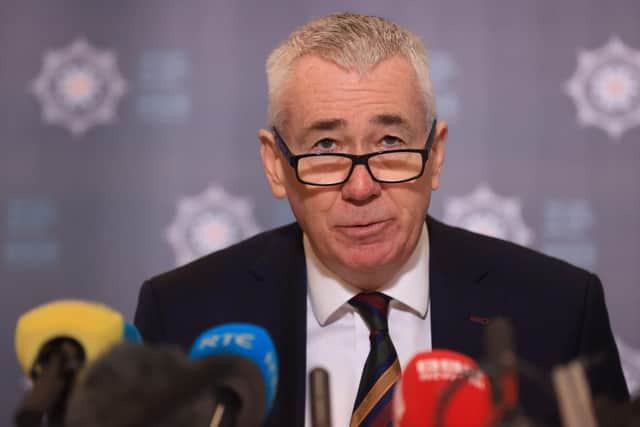We got things wrong, says Jon Boutcher when asked about the culpability of state forces on Kenova
and live on Freeview channel 276
We also asked if he was implying that prosecutors might have pressed charges if they had more resources to deal with legacy.
Mr Boutcher did not directly answer the culpability question but said emphatically: “We got things wrong.”
Advertisement
Hide AdAdvertisement
Hide AdAt the press conference at the Stormont hotel yesterday morning to unveil the report into Stakeknife the News Letter editor Ben Lowry (read Ben Lowry’s weekly column on Kenova here) asked Mr Boutcher about his view on culpability and comments of his that seemed to imply that there might have been prosecutions if prosecutors had had more time to examine the matter.


Mr Boutcher had forwarded a roughly equal number of files to the Public Prosecution Service on IRA terrorists, on the one hand, and security and intelligence personnel on the other.
Mr Lowry asked: “Chief constable, you will have noticed that many of the questions today [from the media] are clearly about the failures of the state and there seems to be almost an implication of complaint on your part of sympathy for the prosecutors, maybe they didn't have enough time to consider it, if they did they might have come to prosecutions.
“That being the case, and given that it might have made them reach a different conclusion, is it correct to characterise your findings [and the forwarding files relating to of] about half ex security forces and intelligence and about half terrorist, that after this penetration of a terrorist movement, that for 30 years caused murder and mayhem in this society, that in this case you think security forces and terrorists are equally culpable?”
Advertisement
Hide AdAdvertisement
Hide AdMr Boutcher answered: “Those files were with the prosecution service for a very long time, but the lawyers who were looking at those files as I understand, then were engaged in lots of other work that they had to do. Because of the bandwidth of those lawyers they didn't have the time to dedicate to look at those files in a consistent, protracted way. They were constantly having to revisit the files and literally when they had some spare time ...”
Mr Boutcher also replied: “With regards to culpability, if I understood your question correctly, I will make clear the sacrifices – and again please read the report in more detail another time – the sacrifices made by security forces who served here was incredible. The RUC was the most dangerous police force in the world, in the world, to be a member of.
“But where we got things wrong, what sets us apart from the terrorists, is that we are open to scrutiny and we accept that we got things wrong and for too long in this particular regard we are not accepting we got things wrong.
“So can I just say again: we got this wrong but that should not detract from the huge efforts of the security forces to keep society safe.”